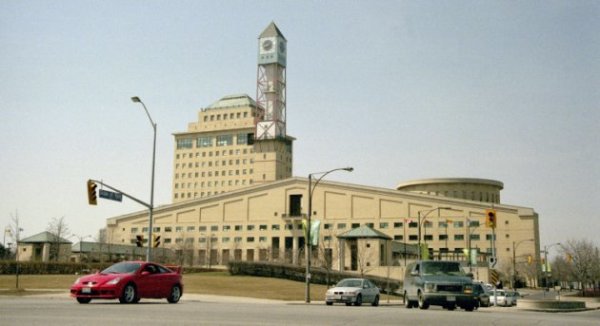Politicians in Mississauga, Ont., are currently hammering out the details of the city’s next operating budget, and if you’re a resident, you can participate online.
It’s not even that hard, though the level to which your input will impact the final budget is still a matter of debate.
Mississauga is among the Canadian cities dragging their budget process into the modern era. Whereas budget discussions were once viewed as an internal debate for which public input was a vestigial tail, cities like Mississauga are now bringing residents into the conversation.
Sonja Banic, Mississauga’s manager of corporate communications, was part of the team that introduced changes to the way the city approached its budget debate.
The crown jewel among those changes is an online budget allocator tool, which allows users to set their preferred budget. It works much like a city-building video game – think SimCity – in which you balance the cost of city services against the municipal tax budget.
“Historically we found that we didn’t really have a lot of public consultation in our budget process,” Banic told Yahoo Canada News.
“Our goal really was this year to educate and inform the public at large in Mississauga about the budget and the choices and challenges that city council has before them.
“The city budget process is quite complex, and trying to demystify it for the public really was our goal.”
Mississauga is Canada’s sixth-largest city, with a population of 750,000 and an annual operating budget of about $700 million. It is currently undergoing a consultation period for the 2015 budget, the first since Hazel McCallion stepped out of office after a 36-year run as mayor.
It is a new era in Mississauga, and part of that era is a commitment to transparency.
Along with live-streaming video of budget meetings, Mississauga is also live-tweeting the debates. They have updated their website to provide a simple, understandable entry into the budget process, and released a video explainer about where their tax dollars go and where it is spent.
But the crème-de-la-crème is the city’s online budget allocator tool, which allows residents to play along at home.
The budget allocator gives residents $260.18 million to allocate on city services, and eight budget lines to address, either improving services such as snow removal and road repairs for a higher cost, reducing services to save money or maintaining the status quo.
The program serves double duty. It gives users the chance to express their priorities, while at the meantime experiencing for themselves the struggle faced while balancing budgets – you can’t spend money on everything.
“Yes, we wanted to inform and educate,” Banic said. “But we also wanted to receive feedback and see if our understanding of what the public`s priorities are is in tune with what the city thinks the priorities are.”
Banic says the results collected from the online budget tool will be compiled into a report detailing the public’s preferences, which will be presented to council about two weeks before the budget is finalized on February 11.
What changes actually come from the report, however, is up to council.
“I don’t know what council is going to do with the feedback,” she said. “Our job is to get that feedback and compile those inputs and give them to council so they have it before them. How it is going to inform the budget process, I really couldn’t tell you. We’ll have to see.”
Yahoo Canada News reached out to Mississauga’s 10 sitting councillors (one of the city’s 11 council seats is currently vacant) to determine what role the report would play in their decision-making process.
Ward 2 Coun. Karen Ras said the online budget tool is a great way to engage those who have “very busy lives” and may not have the time or inclination to read through the entire 500-page budget document.
She added that she would be using the results in conjunction with public conversations and other input to base her final decisions.
“I think it is a high-level guide, and I think it gives people the sense that there are decisions to make,” she told Yahoo Canada News.
“Because this is the first time we’ve used it, there may not be the kind of uptake as in future years. I hope that its use is embraced more over time.”
Of course, other cities hold public consultation processes for budgets, and a few have healthy, proactive online presences as well. Mississauga isn’t the first city to use such an online tool.
Calgary used something similar in 2011 and heard from 24,000 residents. The city says the resulting budget, and its minimal tax rate increase, reflected with desire of most respondents.
Vancouver used a similar program in 2012, and Halifax is currently implementing its own budget allocator tool.
Banic says that the city’s budget allocator tool is part of a commitment to demystify the decision-making process, and an attempt to get people involved. In today’s information age, that’s more important than ever.
“Because of the world the way it is, and all the information hitting people, we recognize we really have to make this accessible 24/7, so it is convenient for people and if they are interested they have options,” Banic said.
“Our goal was, yes, make it accessible and clear and simplify it but also give (the public) the opportunity to see just what the challenges are before council.”






Leave a reply